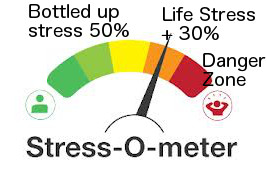Hypnotherapy: by Dublin based hypnotherapist Ailish McGrath
Release the past & be FREE!
Model of Child Development:
If we take a model of the human that says that when a baby is born it is a mental ‘blank slate’. The child has certain natural personality tendencies, but for the most part he/she is open, receptive and begins to learn (through repetition, modeling/copying others and observation) about themselves and the world from the people and circumstances around them.
Children learn functional skills, social skills, how to interact with others, share etc. They also learn through the interactions with their care givers, teachers and other children about their value, whether they are approved of, loved and important.
As the brain develops life experiences i.e ‘memories’ begin to be stored. Most of these memories are just the normal day to day experiences of a developing child.
Emotionally ‘Charged’ Memories
However, some of these memories are ‘emotionally charged’, in that the memory is upsetting to think about.
This is because children have not yet developed the emotional skill/maturity to successfully deal with upsetting experiences, so some ‘growing-up’ events get stored in the emotional part of the brain.
It takes more mental resources to store emotionally charged memories than it does ones that have been processed cleanly (what I mean by ‘processed cleanly’ is that ideally when something upsetting occurs a person feels safe enough to experience the emotion fully, express or release it in an effective way, learn what they can from the event, integrate the learning and resolve the emotional conflict so that there is no burden remaining in their minds).
Up until about the age of 15 or so children have the ability to ‘bottle up’ intense and difficult emotional experiences. They can do this to the extent that they completely suppress the experience and/or the emotions involved in the experience.
This allows them to just get on with their lives and meet the challenges that children meet as part of growing up.
The Problem with ‘bottled up’ memories:
The only problem with this process, is that the bottled up/forgotten emotion/event remains unresolved (not cleanly processed) inside our minds well into adulthood. This takes its toll on our mental resources and negatively informs our unconscious ‘self-concept’. In time it gives rise to what we call ‘ symptoms’ .
When the emotion contained in an experience is released from your system you will naturally get over/resolve the problem.
Hypnotherapy:
The process of hypnotherapy is one where a person is given a safe place to naturally let the stressful bottled up emotions and limiting beliefs from childhood surface into the conscious part of the mind.
The therapeutic process facilitates the ‘clean processing’ of those events and emotions so that the emotion can be dealt with and released. If there is any learning/unlearning required it happens naturally and once resolved the mind comes into calm balance and whatever symptoms were being caused by the emotion clear up as a result of the event/memory resolving.
For example…..
Let’s say you are seven years old, in school, you are a little bit shy and find it difficult to ask the teacher questions. Let’s suppose you need to go to the toilet. You hope you can hold onto break time, but the pressure builds up, and you wet yourself in class. You feel embarrassed and ashamed.
Now let’s suppose all the other kids laugh at you and the teacher gets cross. At this stage you feel intense feelings of shame and embarrassment, you just want the ground to open up and swallow you.
Because you are a child – these emotions are even stronger than you can feel now as an adult. Let’s suppose you’re too embarrassed to mention this to anybody. You only have the resources of a seven-year-old to deal with that very difficult experience. Often, what will happen is that you will bottle the emotions up – because you don’t know what to do with them – forget about the experience, and just turn up the next day as if nothing had happened.
In this example the intense emotion contained in that experience is still inside your system, it hasn’t been released.
Life goes on, and because that emotion is forever trying to be released, what will happen now is that that you will begin to develop ‘symptoms’. You might begin to develop a fear or a phobia of urinating in public, for example. Or, you might develop the physical symptoms of cystitis or kidney infections. Or, what you might do is externalise the problem into an identification and end up working with young children.
Because the original experience that gave rise to the symptoms is bottled up and forgotten you have no clue why you have the symptom . You will use your analytical mind, your conscious mind to try to figure it out over the years. You might come up with some reasoning as to why you have the problem, however this reasoning will be inaccurate, and the problem will persist until the original emotion has been released from your system.
Hypotherapy is used to resolve the bottled up emotion and as a result all of the symptoms go away.
Natural Therapeutic Process:
We all have a ‘natural therapeutic process’ built into our mind. Once we release the emotion that is generated from a difficult experience we will get over that difficult experience.
For example we may have been very upset at the breakup of a relationship at some stage in our life. We would have cried about it, got angry, being upset perhaps even a little depressed, and once that emotion was released through this ‘natural therapeutic process’ then we could easily think of that person without there being any emotional distress whatsoever.
Equally, if you think of the most distressing experience of your life, like the death of a loved one, then after a couple of years have gone by, and you have released that intense emotion of grief, hurt and pain, then on average in about 2 years, you will get to a stage where you can think about the person without being upset, and you’re generally getting on with your life. This again is utilizing the natural therapeutic process built into all of us. Even something that difficult can be resolved naturally through the release of the emotions generated. It is not time that heals, it is the release of the emotion that heals – and it is natural to do so.
So why then, if we can get over very difficult experiences that occur, do we have symptoms? The fact is – that no matter what happens to you – if you get the emotion that results from that experience out of your system, you will get over it. It must therefore be bottled up emotion that you are unaware of, that has not been released from your system, that is producing any symptom you are experiencing. Release the emotion – release the symptom. That is what is achieved with hypnotherapy.
Understanding why we have Symptoms:
Depending on the experiences that occurred in our formative years we will all have a certain level of basic subconscious stress – this is left over / unresolved or ‘bottled up’ stress and emotions from the years that have gone by.
This unresolved, bottled up, emotion is contained within our subconscious mind, it is present all of the time, and gives rise to constant baseline level of subconscious stress. In the example above, it is 50% of the total amount of stress you can experience.
When we experience difficulties in life such as redundancies, break-ups, work stress etc, the intrinsic amount of stress, contained in those experiences might only be about 30%. It really isn’t that much because we are adults and do have resources, skills and talents to deal with normal life stresses. However , because those 30 points are being added to the 50 points that is already there at a subconscious level the amount of stress we feel could be as high as 80%.
This leaves us with only 10 more point before we enter the ‘danger zone’ where we really cannot function properly at all.
A course of pure hypnotherapy, will permanently relieve the subconscious stress/emotion, thereby reducing your baseline level of subconscious stress to about zero.
Then, whenever you are faced with a difficulty in life, you will be much better able to deal with it as the level of stress intrinsic to that life experience is unlikely to bring your total level of stress to any more than 30 – 40% (as you will now be starting at about zero).

